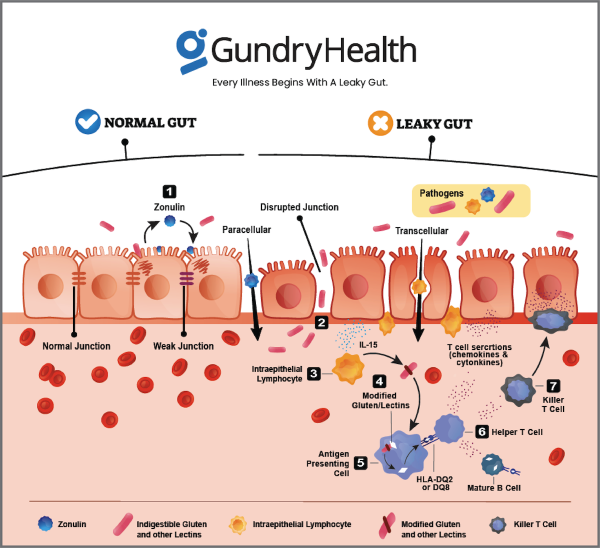Antiphospholipid Antibody Syndrome
Antiphospholipid antibody syndrome (APS) is a rare autoimmune disorder characterized by the presence of antiphospholipid antibodies in the blood. These antibodies can cause abnormal blood clotting, leading to various serious health problems, including stroke, heart attack, and miscarriages.
What is Antiphospholipid Antibody Syndrome?
Antiphospholipid antibodies are proteins the immune system produces in response to certain stimuli. In people with APS, these antibodies attack and bind to phospholipids, fatty molecules that make up the outer layer of cells in the body. This can lead to abnormal blood clotting, which can cause various severe health problems.
APS can affect people of any age and is more common in women than in men. It is often associated with other autoimmune disorders, such as lupus, and can also occur in people who have had certain infections or have been exposed to certain medications.
Symptoms of APS
The symptoms of APS can vary widely and may be mild or severe. Some common symptoms of APS include:
- Blood clots in the veins (venous thrombosis) or arteries (arterial thrombosis)
- Recurrent miscarriages
- Stroke or transient ischemic attack (TIA)
- Heart attack
- Chest pain
- Shortness of breath
- Headaches
- Dizziness or fainting
- Leg pain or swelling
Diagnosis of APS
APS is diagnosed based on the presence of antiphospholipid antibodies in the blood, as well as the presence of one or more of the following:
- A history of blood clots
- Recurrent miscarriages
- A positive result on a test called the lupus anticoagulant test
A healthcare provider will typically conduct a physical exam and review the patient’s medical history to diagnose APS. They may also order a variety of tests, including:
- Blood tests: These tests can help detect the presence of antiphospholipid antibodies in the blood.
- Lupus anticoagulant test: This test measures the presence of an abnormal protein in the blood that can interfere with normal blood clotting.
- Pregnancy-related tests: For women who have had recurrent miscarriages, additional tests may be conducted to determine the cause.
Treatment of APS
Treatment for APS is focused on preventing blood clots and reducing the risk of complications. Treatment options may include:
- Anticoagulant medications: These medications, such as warfarin or heparin, can help prevent blood clots from forming.
- Aspirin: This medication can help prevent blood clots and reduce the risk of heart attack and stroke.
- Immunosuppressive medications: These medications, such as hydroxychloroquine or methotrexate, can help reduce inflammation and suppress the immune system.
- Pregnancy management: For women who are pregnant or planning to become pregnant, close monitoring and treatment with anticoagulant medications may be necessary to prevent miscarriages.
Working closely with a healthcare provider to develop a treatment plan appropriate for the individual’s needs is essential. In some cases, treatment may involve a combination of medications and lifestyle changes, such as quitting smoking, maintaining a healthy weight, and engaging in regular physical activity.
Outlook for APS
APS is a chronic condition that requires ongoing management to prevent complications. With proper treatment and lifestyle changes, most people with APS can lead everyday lives and have a good prognosis. However, it is crucial to follow the treatment plan recommended by a healthcare provider and be vigilant about any potential symptoms or complications.
In some cases, APS can cause serious health problems, such as stroke, heart attack, and miscarriages. These complications can be life-threatening, and it is important to seek medical attention immediately if any of these symptoms occur.
It is also important to note that APS can be a complex condition to manage, as the symptoms and treatment can vary widely from one person to another. Some people may experience frequent flare-ups, while others may have long periods of remission.
In summary, antiphospholipid antibody syndrome (APS) is a rare autoimmune disorder characterized by the presence of antiphospholipid antibodies in the blood. These antibodies can cause abnormal blood clotting, leading to a variety of serious health problems. APS is diagnosed based on the presence of antiphospholipid antibodies in the blood and the presence of specific symptoms or conditions.
Eating a diet that includes plenty of these types of foods can help to support the growth of healthy gut bacteria and promote a healthy gut environment.
Follow a balanced and varied diet that includes a wide range of nutrients and fiber-rich foods, as this can help to support overall health. Please work with a healthcare provider to determine the most appropriate diet and treatment plan for ankylosing spondylitis, as every individual’s needs are unique.
- No packaged and processed foods — these foods, which now make up most Americans’ diets, are loaded with sugar, artificial ingredients, and other inflammatory ingredients. The more you eat them, the more you increase your risk of autoimmune disease and worsen your problem.
- Eat more whole foods — natural whole foods (particularly high-fiber vegetables like onions, asparagus, and artichoke) provide your gut with healthy starches and fiber that will keep you full and improve the health of your microbiome (the beneficial bacteria living in your gut).
- Get your sweetness naturally — sugar is one of the worst foods you can consume. It’s a key driver of inflammation and obesity in nearly all packaged and processed foods. But if you have a sweet tooth, Dr. Gundry recommends eating low-fructose fruits in season (and in moderation). His favorite fruits include wild berries, kiwifruit (with the skin on), pomegranate, passion fruit, and grapefruit.
- Cut out the lectins — these pesky plant proteins can lead to a leaky gut. Common lectin-containing foods include vegetables from the nightshade family (including tomatoes, potatoes, and eggplant), nuts and seeds like cashews and peanuts, and beans and legumes. (You can find a complete list of lectin-containing foods HERE.) Dr. Gundry’s lectin hack: you can completely neutralize the lectins in most foods by pressure-cooking them.
- Don’t forget fiber — perhaps the best food you can eat for a healthier gut is a type of fiber called a prebiotic. Eating more prebiotic fiber is the easiest (and fastest) way to a healthier, happier gut. And one of the best prebiotics is inulin, which you can find abundantly in foods like chicory, asparagus, onions, leeks, and artichokes. Dr. Gundry’s “refrigerator trick” to get more prebiotic fiber from starchy foods like yams, sorghum, millet, and pressure-cooked rice: cook them, chill them, and reheat before eating.







